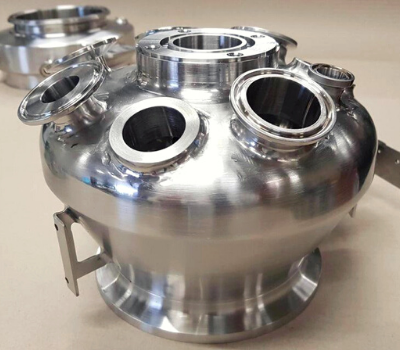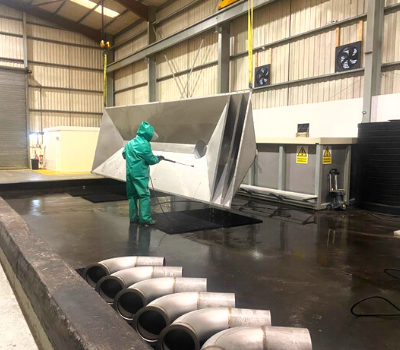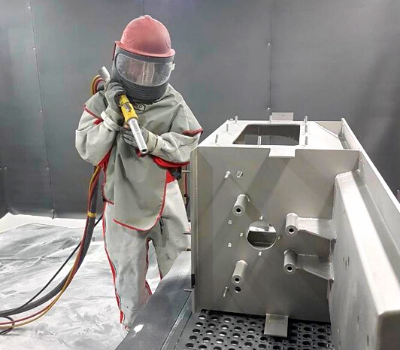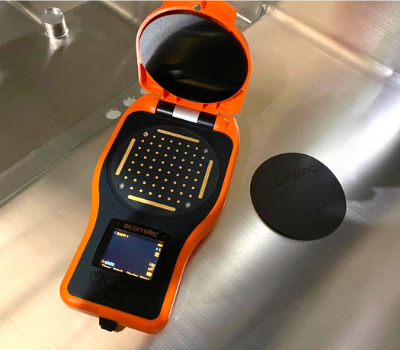From our bespoke 10,000 sqft metal treatment facility in Oldham, Greater Manchester, we are able to offer our clients a value centric service which is underpinned by our commitment to quality and cemented by our ISO 9001 accreditation.
Preparation
Decreasing the substrate is a critical step in the pickling process to ensure uniform formation of the passive layer.
Unique P1 is an acid based cleaner that works to remove oil, grease, smut and other inorganic contaminates. It prepares the substrate for pickling.
Pickling
Pickling is the removal of any high temperature and any low chromium layer of metal from the surface of stainless steel by chemical means.
Where the stainless steel has been heated by welding, heat treatments or any other means to the point where a coloured oxide layer can be seen, there is a chromium depleted layer on the surface of the steel underneath the oxide layer. The low chromium content gives lower corrosion resistance. The pickling process removes weld discolouration and foreign iron and restores corrosion resistance. It also brings the steel back to the original base material.
The pickling process can be performed in several procedures:
- Immerse in pickling solution.
- Applying pickling paste for local pickling.
- Spray pickling – a sprayable pickling paste for quick and economical large surface areas.
- Circulation for large pipework and fabrications is available on-site where the above processes are not viable.
Capabilities:
- 6m x 8m high roller shutter door
- Off road parking for HGV with full turning circle
- 2 x 5 tonne capacity overhead cranes
- 14500 litre pickling bath – 6m x 2m
- New 4m x 2m x 2m pickling tank dedicated to Nuclear projects
- 12m x 9m purpose built chemical cleaning area
- In-house Automatic Effluent Plant to safely dispose of waste liquids
- Lean production process to ensure on time deliveries
- Passivation testing
- Ferroxyl testing
- Soluble Salt Testing
Benefits of Pickling & Passivation:
- Dissolves surface ‘free iron’ particles
- Increases corrosion resistance
- Removes surface contaminants
- Instantaneously forms passive oxide layer
Passivation
Although this process occurs naturally on the surface of
stainless steel, it is often useful to accelerate and assist in
the development of the passivation layer. Passivation occurs
when chromium oxidises with the oxygen in the air to form a corrosion resistant passivation layer. This process can be accelerated and assisted with a passivation product; ensuring the development of a uniform and thick passive layer.
All of Unique‘s polishing procedures are coordinated to ASTM A380 standard practice for cleaning, descaling and passivation of stainless steel.
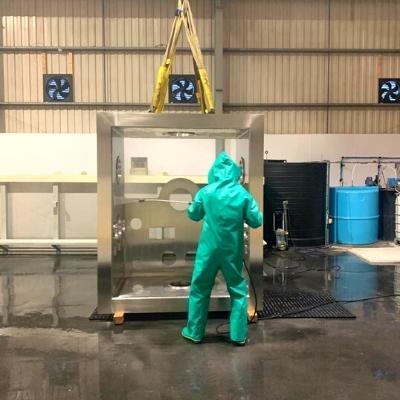
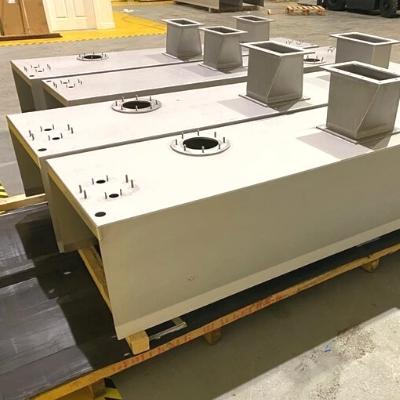
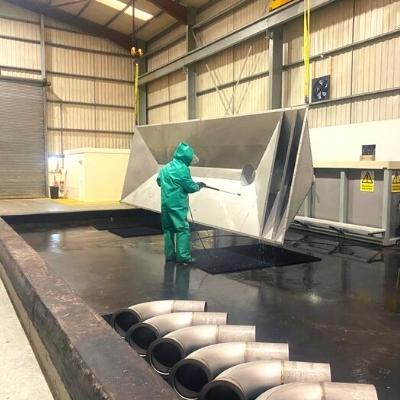
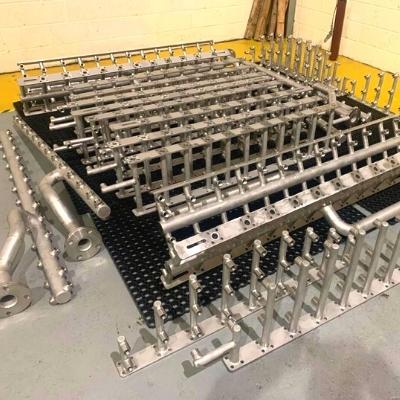
Our Solutions
Unique Polishing provides a one-stop shop for complete metal finishing solutions
